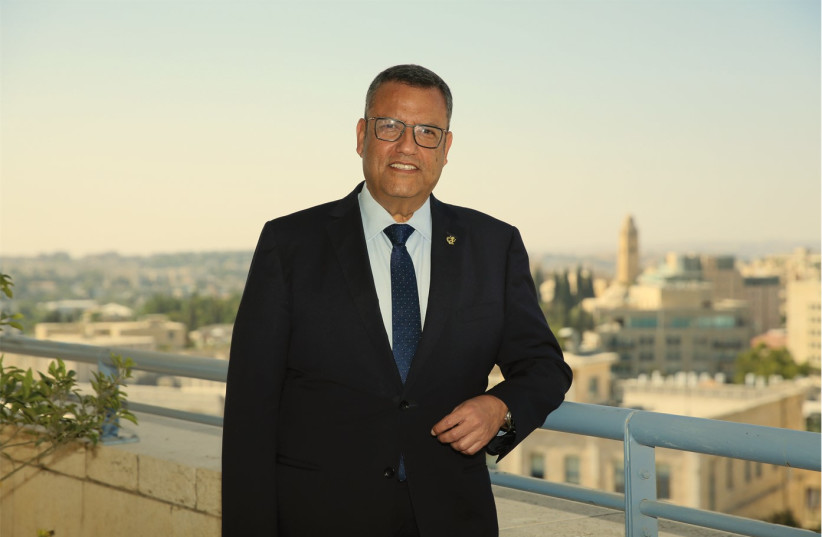As the planet continues getting hotter, governments around the world are making efforts to reverse or at least reduce the impacts of climate change, and now Jerusalem is joining the very dire challenge.
A joint initiative by the Energy Ministry and the Jerusalem Municipality has been launched to develop an outline for a renewable energy economy for the Old City. The program comes with NIS 90 million in funding, with the Energy Ministry, the Jerusalem Municipality and a group of other assorted ministries each contributing a third of the budget.
The energy plan is to outline an improved Jerusalem energy infrastructure that will implement self-generating renewable energy, energy storage, electricity and natural gas infrastructure investment and the promotion of alternative transportation systems and electric charging stations. It will address energy poverty within the city, aiding those who lack access to sustainable modern energy services and products. The plan will also support various pilot programs such as an electricity distribution network in cooperation with the Israel Electric Corporation and the municipality.
"The Jerusalem metropolis continues to develop and grow, and the government's decision to develop renewable energy projects creates an opportunity for the city to become a smart, green and renewable capital,” said Construction and Housing and Jerusalem and Heritage Minister Ze'ev Elkin.
“The Jerusalem and Heritage Ministry, under my leadership, continues to develop the city in many areas in fruitful cooperation with the municipality and the various government ministries, in order to strengthen Jerusalem.”
Ze'ev Elkin

“The Jerusalem metropolis continues to develop and grow, and the government’s decision to develop renewable energy projects creates an opportunity for the city to become a smart, green and renewable capital,” said Construction and Housing and Jerusalem and Heritage Minister Zeev Elkin. “The Jerusalem and Heritage Ministry... continues to develop the city in many areas in fruitful cooperation with the municipality and the various government ministries, in order to strengthen Jerusalem.”
The Jerusalem Municipality is currently promoting dozens of energy-efficiency projects as part of the municipal plan to deal with the climate crisis, led by Mayor Moshe Lion. It is working to replace all municipal lighting systems with LED lighting, install solar panels on public buildings, integrate green building standards in new public buildings, and expand the number of charging stations for electric vehicles.
Investing economic resources and regulators in strengthening the energy and economic resilience in Jerusalem is a move of national importance to the State of Israel, the mayor said.
“The capital city of Jerusalem, which is considered a pioneer and innovator in a variety of areas, is receiving a significant boost towards becoming the leading city in Israel in the field of renewable energy, and a role model among all authorities in Israel,” said Lion. “Together with these ministries, we will promote a variety of projects that will improve the quality of life of Jerusalem residents and make Jerusalem a greener city.”
“Together with these ministries, we will promote a variety of projects that will improve the quality of life of Jerusalem residents and make Jerusalem a greener city.”
Mayor Moshe Lion
A step in the right direction
Dr. Amir Givati, From Tel Aviv University’s Department of Environmental Studies, believes this move is a step in the right direction.
“It’s a big step, and it makes two statements: One by the government that they’re going to use Jerusalem as Israel’s biggest and most important city in order to promote this step of reducing emissions and greenhouse gases; and also important is the statement made by the cooperation of government ministries with the local municipality.”
That last point, Givati noted, is made significant by the fact that there haven’t been any prior instances of the Israeli government handing this kind of funding over to a city itself and essentially saying “go for it.” The gesture implies a real effort to move these projects forward. “We need to let our cities lead, because they know best. When it stays at the ministry level and doesn’t make its way into the field, we’ve seen that not too much happens.”
That said, the government’s declaration is somewhat lacking, mainly because at present it’s only a declaration. “I would be happier if they would say, ‘By 2025, we want to achieve this or that goal.’ That would give it a much stronger foundation,” said Givati. “The Energy Ministry must put out details: when it’s going to happen and what exactly the target is and how many emissions we’re going to reduce.”
The plan does have at least one thing going for it. As Givati points out, “At least there’s a budget.”
